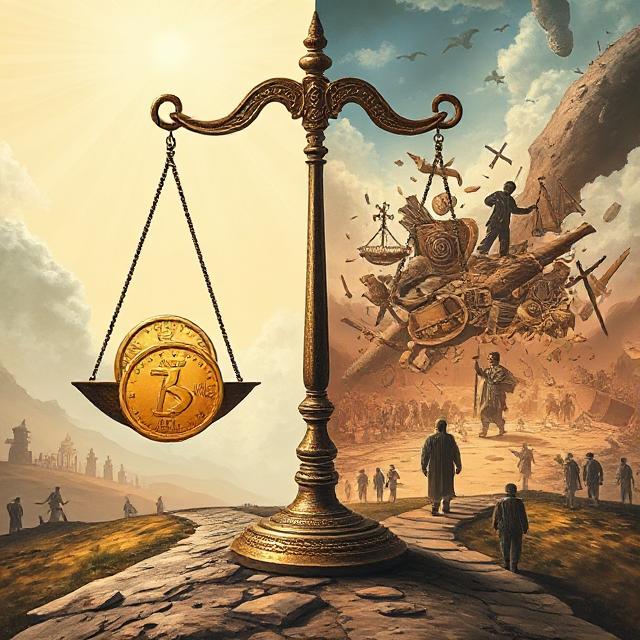
Table of Contents
Is Stealing Always Wrong? Moral Perspectives Explained
Is stealing always wrong? It seems like a straightforward question with an obvious answer: “Yes.” But the moment we examine real-world scenarios, historical contexts, and moral philosophies, the certainty begins to dissolve. What if you’re stealing bread to feed your starving child? What if the item was unfairly taken from your ancestors? Is it still theft if one reclaims what was stolen?
This article explores the moral complexity behind the act of stealing, drawing from philosophical schools of thought, cultural traditions, and practical case studies. We’ll uncover why this seemingly simple question invites such a rich, nuanced ethical debate.
I. Defining Stealing
Stealing typically refers to taking something that does not belong to you without permission or legal right. It involves violating ownership and often harms the person from whom the item is taken.
But what defines ownership? And what if the laws that uphold ownership are themselves unjust? These questions already begin to complicate the moral judgment.
II. Ethical Frameworks on Stealing
A. Deontology: The Rule-Based View
From a deontological perspective, particularly that of Immanuel Kant, stealing is inherently wrong. Moral rules are absolute, and violating another’s rights—like property ownership—is unacceptable, regardless of consequences.
- Moral law: “Do not steal” applies universally.
- Even stealing to feed the hungry violates the principle of treating others as ends, not means.
B. Utilitarianism: Consequences Matter
In contrast, utilitarianism judges actions by their outcomes.
- If stealing bread saves a life and causes minimal harm to the shopkeeper, then it could be morally justified.
- The goal is maximizing well-being and minimizing suffering.
This view permits morally gray areas, where theft might be the lesser evil.
C. Virtue Ethics: The Moral Character Lens
Virtue ethicists ask, “What would a virtuous person do?”
- Stealing might reflect desperation rather than vice.
- If one steals to support justice or survival, it might not tarnish their moral character.
This approach considers motives and the context of action over strict rules.
III. Cultural and Religious Perspectives
A. Christianity
- The Ten Commandments include “Thou shalt not steal.”
- But Christian teachings also emphasize compassion and caring for the poor—creating moral tension.
B. Islam
- Theft is condemned and punishable under Sharia law.
- However, exceptions are recognized when life is in danger and basic needs are unmet.
C. Indigenous Traditions
- In some Indigenous cultures, communal ownership limits the concept of theft.
- What is “stolen” in Western property law might be seen as reclaiming ancestral land.
These views show how morality varies across spiritual and social frameworks.
IV. Legal vs Moral Dimensions
Laws may criminalize stealing, but law and morality don’t always align.
- Example: Harriet Tubman and the Underground Railroad involved “stealing” slaves from owners. Was that immoral?
- Whistleblowers like Edward Snowden “stole” classified information—was that theft or heroic defiance of unjust surveillance?
The difference between legality and morality often centers on justice.
V. Stealing in Desperate Situations
A. Jean Valjean’s Dilemma
In Victor Hugo’s Les Misérables, Jean Valjean steals bread to feed his sister’s starving children. He is imprisoned for years.
- Readers overwhelmingly sympathize with him.
- His theft is seen as a moral act of necessity, highlighting the rigidity of legal punishment.
B. Modern Food Insecurity
In cities around the world, people are arrested for shoplifting food. Should poverty-induced theft be treated as a crime or a symptom of systemic failure?
This debate fuels policy discussions around universal basic income, social safety nets, and food banks.
VI. Stealing as Reclamation
A. Colonial Reparations
- Is it theft to remove artifacts from museums that obtained them through colonial plunder?
- Indigenous groups argue it is reclaiming stolen heritage.
B. Land Back Movements
- Reacquiring land taken through broken treaties is labeled “theft” by some, but “justice” by others.
Here, the moral judgment depends on historical interpretation and fairness, not mere possession.
VII. Digital and Intellectual Theft
Stealing has evolved in the digital age:
- Piracy of movies, software, and music is widespread. Is it morally wrong if creators are billionaires?
- Plagiarism involves theft of ideas. Does intent matter if no profit is gained?
These examples show how technology complicates moral boundaries.
VIII. Philosophical Thought Experiments
A. Lifeboat Ethics
If you’re stranded with limited food, and someone hoards extra, is it wrong to steal from them to save others?
B. The Trolley Problem Variant
What if you must steal medicine to save five lives? Do the ends justify the means?
Such dilemmas highlight how rigid rules can clash with lived experience.
IX. Final Reflections: A Question of Context
So, is stealing always wrong? Philosophy, law, and lived experience say: It depends.
Stealing for greed or personal gain at another’s expense is widely condemned. But stealing for survival, justice, or restitution often challenges the moral absolutism of “never steal.”
Morality thrives in nuance. Recognizing the difference between selfish theft and ethical resistance helps us build more compassionate, just societies.
